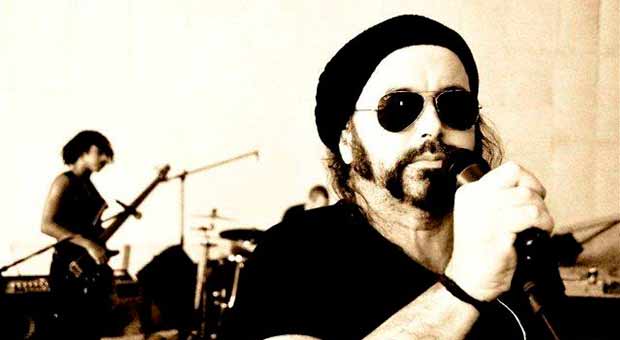Everyone knows what Carlos Varela sings to. But, as in other matters of and in Cuba, there is complicity, a double sense, an alleged tolerance or what we might call … the benefit of metaphor. That troubadour, with his typical black garments and his mystical projection, is already covered by the cultural haven of free interpretation.
Completing his legend, Carlos Varela has a book with his name, published in Cuba by the Pablo de la Torriente Brau Cultural Center. It is not an autobiography, not even a biography, but a kind of musical treatise written at sixteen hands (ie eight authors) in which the meaning and context of songs like “William Tell” or “La política no cabe en la azucarera.”
The only words the musician wrote in ” Habaname : the musical city of Carlos Varela ” is the complete list of all the lyrics to his songs, including the end of the book, but also scattered throughout the articles that explain , narrate and confabulate about the artist and what ‘s behind his creations.
The two specialists in charge of putting together the volume, María Caridad Cumana and Karen Dubinsky, admitted having collected texts dealing with music, ” but also about many things : emigration , generations , film , Havana , political power and history and future of the Cuban Revolution. “
On Carlos Varela they assert that “his ability to create controversy parallels the skill to reflect times of political tension through music.” Observation of the William Tell song is “a sharp comment on the provisions of political power” gives us the certainty that it is a direct book (perhaps too direct for Orthodox tastes).
In its pages, each of the eight authors describes the troubadour in his own way. Cuban journalist Joaquín Borges -Triana is not limited to draw stories (rather seem memories) of Carlos Varela in the eighties and adding three other artists: Santiago Feliu, Gerardo Alfonso and Frank Delgado, which together formed a kind of Musketeers musical quartet.
Other essayists devote more than a page to lecture about one song, his statements and fabrications , which reveal us (or rebel ? ) a Carlos Varela much more daring than we can think at a time when in Cuba we are speaking of change of mind. It seems that in his early years, back in the eighties, the author of “Like an Angel” was so outrageous as subversively as now are Los Aldeanos
” Habaname .. ” is full of curious observations for the least informed about the evolution of the trova . The American Robert Nasatir found enough references to convince the reader that Varela is an heir of Silvio Rodríguez , gathering in his text the many homage he has done to the man of Ojala .
For the Cuban journalist Xenia Reloba , the song canción “La Política No Cabe en la Azucarera” is a musical chronicle of the abysmal years of the Special Period , with economic and political background to explain why ” a friend bought a Chevrolet 59/didn’t want to change some parts and now it does not move. “
But the song mentioned again and again, which seems to haunt the authors of the book, is “William Tell” and the metaphor of generational conflict suggests, between the hero father and son looking for his chance.
According to the American musicologist Susan Thomas, his songs are chronicles where “graphic descriptions of Havana served as backdrop for the sharp social and political commentary.”
The eight texts in the book are both an analysis of the music and lyrics of Carlos as a review of the context in which they were composed. They barely talk about the music or the sound itself. Everything is focused on the lyrics and the country ( or rather in the city) that it inspires , whether in the midst of widespread heresy of the generation of the late eighties, during the mass breakout caused by the Special Period and because of the frustration of a nation that was half the way to a dream.
At least for the writer of these lines, ” Habaname … ” aroused interest in the lesser-known (or perhaps better to say less “worn-out” ) like “Solo Tú (puede traer el Sol)” by the empathy that one tracks may feel toward the following stanza : ” For a long time things are said and is still talking about me / I know it’s the price for caring for a rose / I know it’s the price to stay here . “
Photo: taken from the official website of the artist










